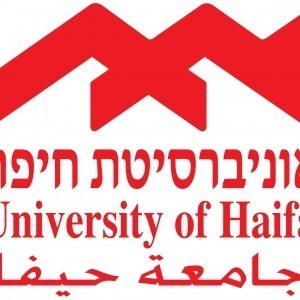Photos of university / #telavivuni
The Law and Technology program at Tel Aviv University offers a comprehensive interdisciplinary education designed to equip students with a deep understanding of the legal, technological, and societal challenges arising from rapid advancements in technology. This unique program bridges the fields of law, computer science, information systems, and innovation management to prepare future legal professionals, technologists, and entrepreneurs for the dynamic landscape of digital transformation. Students in the program will explore key topics such as intellectual property law, data privacy, cybersecurity, digital rights, and emerging legal frameworks for artificial intelligence and blockchain technologies. The curriculum combines rigorous legal studies with technical courses, fostering critical thinking, analytical skills, and practical expertise necessary to navigate and shape the evolving technological environment. Students gain hands-on experience through internships, workshops, and collaborations with industry partners, ensuring they are well-prepared for careers in legal consultancy, technology startups, governmental agencies, or academic research. The program emphasizes ethical considerations and societal impacts of technology, encouraging students to develop responsible and innovative solutions to complex legal issues. Graduates of the Law and Technology program will be equipped to address the legal aspects of digital innovation, contribute to policymaking, and advocate for responsible technological development in various sectors. With access to Tel Aviv University’s renowned faculty, cutting-edge research centers, and vibrant innovation ecosystem, students are immersed in a stimulating academic environment that fosters creativity, entrepreneurship, and leadership. Whether aiming to become legal advisors for tech companies, policy makers, or scholars at the forefront of legal and technological integration, students will find in this program a solid foundation and a pathway to impactful careers in the modern digital age.
- Intellectual Property as a Toolkit for Technology Transfer
- Intellectual Property in a Digital Age
- International IP Law
- Licensing of IP
- Corporate Innovation and Legal Policy
- Start-Up Law
- EU Data Protection Law: Fundamentals, Flaws, and Future
- Seminar - Information Technology Law
- Workshop - Law & Information Technology
- CV/Resume
- Law degree transcript(s) & diploma(s)
Transcripts must show all courses and grades obtained, and should be submitted with the corresponding diploma. Please provide a letter from your law school indicating your individual rank in your class, if available.
Transcripts may have to be officially translated at the applicant's expense to be reviewed by the Registrar's Office. - Law school ranking
If available, please ask your law school to provide a letter indicating your individual law school ranking. - Personal Statement (essay)
Your personal statement should be no more than 500 words and should describe your background, your academic or professional interests and goals, and your motivation to study in the International LL.M program. - Two letters of recommendation
Recommendation letters should written by law professors or legal employment supervisors. - TOEFL or IELTS score
An English-language proficiency exam must be taken before July 1, 2016, and official scores must be sent directly to the TAU International office by the testing agency. TAU International's ETS code is 7704. TOEFL test minimum scores: written 582, computer-based 223, or internet-based 89. The minimum overall bandwith score for the IELTS test is 7. Exemptions may be granted - please inquire with the Admissions Director. - Completed online application form
Make sure to complete the program-related questions on the application portal. - $150 application fee
Financial aid/scholarships will be offered to promising candidates according to needs or academic qualifications, and in order to promote diversity.
The Law and Technology program at Tel Aviv University is an interdisciplinary academic track designed to prepare students for the dynamic intersection of legal studies and technological innovation. This program aims to equip future legal professionals with comprehensive knowledge of legal principles alongside a deep understanding of emerging technologies, including information technology, cybersecurity, intellectual property, data protection, and digital rights. The curriculum integrates traditional legal courses with specialized modules that explore the legal implications of technological advancements, fostering an environment where students can analyze, understand, and influence the evolving legal landscape shaped by rapid technological change. Students participate in courses taught by experts in both law and technology, enabling them to develop critical skills necessary to navigate issues related to digital privacy, online intellectual property disputes, technology regulation, and legal aspects of artificial intelligence and blockchain. Practical training is often incorporated through internships, workshops, and collaboration with high-tech companies and legal firms working in the technology sector. The program also emphasizes the ethical considerations and policy challenges posed by new technologies, encouraging students to think critically about responsible innovation and the societal impact of legal decisions in cyberspace. Graduates of the Law and Technology program are well-positioned for careers in legal practice, corporate counsel, policy making, or further academic research, contributing to areas such as legal consulting for tech companies, digital rights advocacy, and regulatory agencies. Tel Aviv University’s strong connections with Israel’s vibrant high-tech industry provide students with valuable networking opportunities and real-world experience. The program is suitable for law students, technologists, or professionals seeking to specialize in the legal aspects of technology, offering a comprehensive educational platform that merges legal expertise with technological literacy to meet the demands of the digital age.

